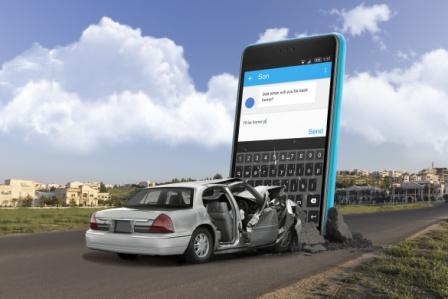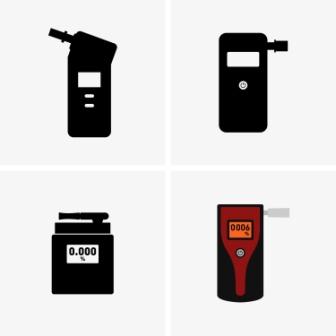Few people see the aftermath of car accidents more often than plaintiff attorneys who represent the injured drivers or the families of those who are killed. We asked leading personal injury lawyers who focus their practice on car accident litigation what drivers can do to avoid getting in a car accident.
Here are their top safe driving tips…
Navigate the article
#1 Mind Road Conditions
Municipal entities are generally responsible for the maintenance of roads, but unfortunately repairs can be slow. It's up to drivers to be aware of hazards posed by potholes, exposed manhole covers, missing or broken guardrails, and other dangerous road conditions. Always report these issues, but expect to be vigilant when you're driving down a damaged road.
Contributor: Jack Hickey of Hickey Law Firm, P.A.
#2 Pay Attention
The vast majority of automobile accidents occur because of the inattention of one or more drivers. We take driving for granted because everyone is allowed to do it, and because the DMV requires only minimum training and demonstrated competency.
But think about this: the average automobile weighs 2 tons! It is a large, dangerous piece of equipment if not used with due care. It requires your full attention to operate it safely. Yet we think nothing of talking on the phone, texting, reading emails, putting on makeup or doing our hair while driving.
If more people saw the aftermath of a high speed collision, and the injuries they will undoubtedly cause, I think we might all take driving more seriously.
Contributor: Michael Louis Kelly from the law firm Kirtland & Packard, LLP
#3 Monitor Your Speed
Most automobile collisions are caused by negligent drivers that invoke one or more of these three factors: distraction, speed, and loss of control. Of these three factors, speed is the critical factor in most collisions. Hence, if careful drivers will more closely monitor their own speed through intersections and dangerous road conditions, they can likely avoid a collision with another driver who is not using caution.
Contributor: Jeff Robinette from Robinette Legal Group
#4 Drive Defensively
While more deaths are caused by drunk driving, more injuries occur from distracted driving. Drunk driving typically occurs at night or on the weekends. Distracted driving tends to occur during rush hours.
We can protect ourselves by enhancing our defensive driving skills by being skeptical of other drivers, being aware of our surroundings, maintaining a safe following distance, and avoiding our own distractions.
Contributor: Stephen Chance from Watkins, Lourie, Roll & Chance, PC
#5 Keep Right
One of the best things you can do to avoid being in an accident is to follow the rule that the left lane(s) are designated for passing only.
Riding in the left lane prevents other motorists from passing you in the correct (left) lane, which leads to increased tailgating (where frustrated drivers tailgate you to send a signal that you are in the wrong lane) and dangerous right-lane passing (where frustrated drivers may risk an accident by attempting to pass you at high speeds in the right lane (often with very little room for error on their part).
Even if you drive your own vehicle as safely as possible in the left lane, you are at a much higher risk of being in an accident because you are frustrating the drivers around you by failing to follow the rules of the road.
Contributor: Jacob Penrod from the law firm of Hoover Penrod PLC
#6 Watch for Wide Turns
Drivers should know to expect that a car signaling a turn is going to unexpectedly pull too wide and into the passing car’s lane just as the passing car pulls even. On a four-lane road or highway, drivers should know to expect that a car will pull from the right to the passing lane when the passing car is in the other car’s blind spot.
The moral: Drivers should know to drive defensively and expect the worst at all times.
Contributor: David Cole from Cole Law Office
#7 Be Proactive
The most important thing drivers can do to avoid accidents is to assume other drivers will not adhere to traffic signals, stop signs or speed limits. Always drive defensively. Always be proactive, not reactive.
Contributor: David Eisbrouch from Eisbrouch Marsh, LLC
#8 Watch the Weather
Snow, rain, and ice are leading causes of accidents in certain areas of the country. It's important to be prepared.
Make sure your car has plenty of windshield wiper fluid at all times, invest in all-weather tires (or snow tires, if winters in the area are especially bad), and tune in to the weather forecast or check the weather app on your phone before you drive. Knowing what to expect will help you prepare for conditions and drive more safely.
Contributor: Chris Jeffress of Jeffress Law
#9 No Devices Behind the Wheel
Put your phone down! Distracted driving is on the rise, and it substantially increases your risk of getting in an accident.
Contributor: Jonathan Sar from Leventhal Sar LLC
#10 Recognize Technological Impairments
Texting while driving is equivalent to a BAC of .08. Both conditions result in a level of impairment while driving.
Contributor: Courtney Haskins from McPhillips, Fitzgerald & Cullum, L.L.P.
This post was created with our nice and easy submission form. Create your post!











